#sign languages
Photo
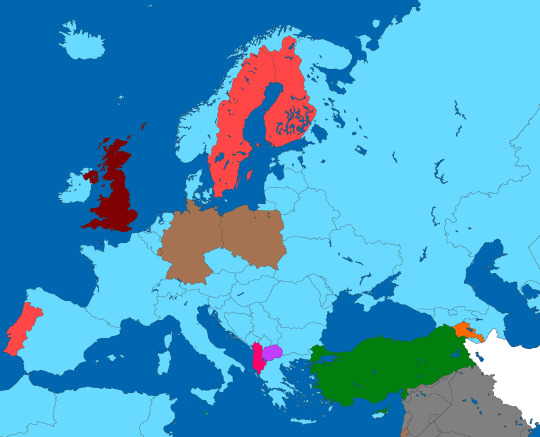
Sign Languages (isolates)/Language Families used in Europe
Light Blue: French Sign Language family
Light Red: Swedish Sign Language family
Dark Red: British, Australian and New Zealand Sign Language family
Brown: German Sign Language family
Pink: Albanian Sign Language
Purple: Macedonian Sign Language (unclassified)
Grey: Arabic Sign Language family
White: Iranian Sign Language
Dark Green: Turkish Sign Language
Orange: Armenian Sign Language
Light Green: Maltese Sign Language
266 notes
·
View notes
Text
Okay, apparently google is spreading misinformation to english speakers.
LIBRAS(Língua Brasileira de Sinais) is the national sign language of Brazil.
There are other brazilians sign languages, languages of indeginous people, but to my knowledge they don't go by any acronym.
I saw the wikipedia page, and I have no fucking idea where it took that acronyms, LIBRAS goes only by LIBRAS in Brazil.
Also don't mistake LIBRAS with LGP(Língua gestual portuguesa/Portuguese gestural language). LGP is from Portugal.
(saw some mistakes when people were making headcanons of the eggs speaking in sign languages)
198 notes
·
View notes
Text
I'm currently writing a paper on signed communication systems in the South Pacific for one of my Uni classes, and there's this one source that's just hitting me different. It's about a man named Kagobai who was the only deaf person in the islanders' living memory, so in order to communicate he just straight up developed his very own sign language from scratch. His signs were only ever documented once, back in the early 1970's, at which point Kagobai was already in his 60s, so he's likely not around anymore, and his sign language probably died along with him.
And like, I'm so happy that there is any record at all of this wonderful man who invented a whole language out of necessity, but it's so bittersweet that the documentation isn't complete and can no longer be fleshed out. And it just made me think about how many individual sign languages and sign systems have probably existed throughout time and went extinct without anyone ever recording them, so now they're gone forever. And that made me sad.
#just stupid linguist thoughts i guess#it's just been so amazing to research this topic#to see the inventiveness and creativity of people#and I just needed to get this feeling out somehow cause it started gnawing at me#sign language#sign languages#deaf#deafness#pacific#oceania
371 notes
·
View notes
Text
on that topic … sign .
one reason not know or can use much sign , is because people around gwydion both make game from this , and refuse learn even alphabet .
basic letters " too hard " , but even when use full individual words ? so funny wonderful joke to helpfully " point out " things those signs could look like . every single time .
imagine if people follow around and do that with english words that sound similar . can not say night as in time , or knight as in medieval job , without some wise guy make " jokes " about misunderstand which one use . on purpose . every single time .
imagine say , " this will be all night . "
to get answer , " oh boy , all knights ? how many knights is that ? haha laugh . this is funny . "
or maybe , " this door is noisy . "
to get answer , " no way this door from boise ! this is funny joke , laugh ! "
so hey . do not do this to people who sign . do not care if think sign look funny , or like rude gesture , or if think sign do not " match " what word mean . shut up forever .
199 notes
·
View notes
Text
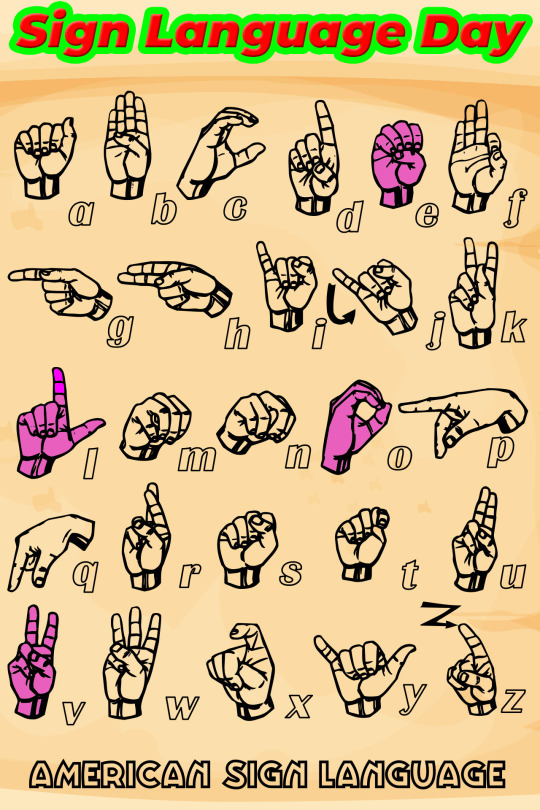
It's September 23rd, International Sign Language Day. The United Nations instituted this event in 2018 to commemorate the World Federation of the Deaf (WFD)’s founding in 1951. The objective is to raise awareness of sign languages and deaf culture and to promote the acceptance of sign languages as deaf people’s basic human rights. The event has grown into a global movement to resolve the many issues deaf people face in their everyday lives and is celebrated through various activities by respective Deaf Communities worldwide.
These activities call for participation and involvement of various stakeholders including families, peers, governmental bodies, professional sign language interpreters, Disabled People’s Organizations (DPOs), and concerned people all over the globe. All of us are invited to unite in endorsement of the need to secure and promote the human rights of deaf people. Please affirm your support for full human rights for all deaf people by signing the WFD Charter on Sign Language Rights for All at https://wfdeaf.org/charter.
Sign languages are visual languages that transmit messages. The 72 million deaf people on our planet use over 300 distinct natural sign languages, although there is also an international sign language that deaf people use when mingling, traveling, and attending international meetings. The international sign language is considered to be a pidgin form because it isn't as complex as the natural sign languages and has a limited lexicon.
Sign languages have been used by deaf people throughout history. Plato’s “Cratylus,” published in the 15th century BCE, has one of the oldest recorded accounts of sign language. Socrates also commented on the utility of sign languages: “If we didn’t have a voice or a tongue and wanted to communicate with one another, wouldn’t we try to make signals by moving our hands, heads, and the rest of our bodies?” Naturally. ☮️ Peace… Jamiese of Pixoplanet
#jamiese#pixoplanet#sign language day#idsl#iwdp#dpo#sign language#deaf awareness#sign languages#iwdeaf#deaf community#world federation of the deaf#wfd#un#united nations#sign language class#sign language for children#sign language challenge#sign language quote#sign language interpreter#sign language week#sign language love#sign language in schools#deaf culture#international week of the deaf#deaf week#international day of sign languages#deaf#deaf awareness month#sign languages day
1K notes
·
View notes
Text
Little mermaid AU where the prince is Deaf so when Ariel shows up clearly mute he signs at her like “it’s cool! I’m Deaf. I sign” and when she’s like “?????” And he’s like “oh so she must be from a differing kingdom and sign a different language” so he’s like perpetually like trying every sign language he knows (which is a lot because princely education ya know?) and when she still continues to look at him blankly he’s like “WTF”.
89 notes
·
View notes
Text

Originally posted here on reddit.
"Hello everyone, I am a PhD student at the University of Georgia studying sign second language acquisition. I am looking for hearing ASL learners to take part in an exploratory study. If you have the time to help out a poor grad student I would greatly appreciate it!"
I'm not the OP but she gave me permission to signal boost this here. Please participate if you can!
#asl#american sign language#asl resource#sign language#signed languages#sign languages#signal boost#reyna's ramblings#langblr#lingblr
33 notes
·
View notes
Text
10 things you should know about sign languages
Want to learn even more about sign languages? Check out my curated list of books on sign!
43 notes
·
View notes
Text


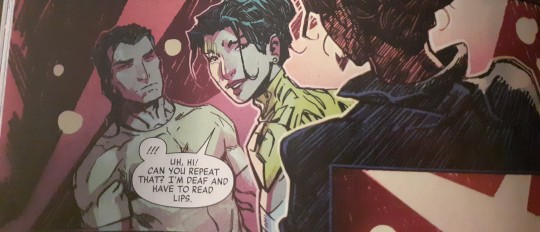















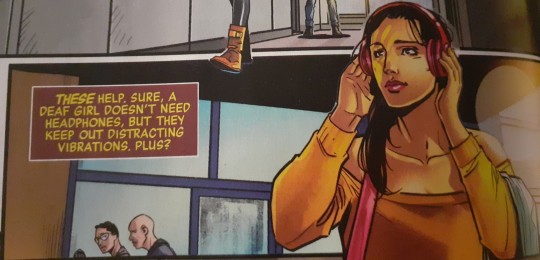

Maya Lopez +deafness in Phoenix Song: Echo #1-#4 (2021)
#maya lopez#marveledit#deaf#deafness#sign languages#asl#native american sign language#cahokia#phoenix song#echo#choctaw
74 notes
·
View notes
Text
No other animal even comes close to humans when it comes to speaking. Our ancestors developed the ability to speak over the past two million years, and this was made possible largely by the position of our hyoid bone which anchors the tongue and allows for very complex vocalizations which can convey very complex ideas.
[…]
As we develop speech we also continue to develop absurdly large brains gaining neural mass. Most notably in areas of the brain associated with executive function. This aided not only in our communication but also in our ability to think critically to innovate to plan for the future to think symbolically.
Source: "What is a human?" is a surprisingly hard question | ft. @GutsickGibbon. Forrest Valkai YouTube channel (Transcription adapted from the auto-generated closed captions, starting at 9 minutes, 16 seconds)
Headdesking forever, punctuated by perpetual facepalming.
I swear -- paleoanthropologists (and also doctors, teachers, occupational therapists, psychologists, and others), all have an effing tongue fetish.
How do we know that the evolution of the hyoid bone, and humans' subsequently acrobatic tongues, came before our ability to think in complex, symbolic ways, instead of concurrently, or even after? It's not just human tongues that are more nimble, and capable of more subtle movement than those of our nearest great ape relatives. Our hands and fingers are, too (and also our facial expressions, the way we can raise and lower our eyebrows, and twist and move our lips).
Language ability is in the brain, not the mouth. And I know that Mr. Valkai knows this, because he's made videos talking about how ASL is a real language, and I've seen him count off items on a list using ASL numbers.
But brains don't fossilize.
So what actual evidence is there for this claim that human intelligence began with complex, vocal, speech, besides our preconceived notions and biases?
I ask because it's (semi) personal. I've seen incredibly bright kids whose cerebral palsy affected their tongue, and the school system they were in decide they just can't be taught how to read, because they can't read aloud, and the school had no plan on how they could test their reading comprehension.
Don't get me wrong. I think the hyoid bone is incredibly cool. And I love the things that many humans can do with their voices. I just wish it weren't assumed to be so important to our general intelligence.
#human evolution#human language#speech#sign languages#cerebral palsy#ableism#education#forrest valkai
58 notes
·
View notes
Note
wait, would you happen to have Norwegian sign language / be interested in getting that in the future?
Hello, I'm very interested in getting that in the future but - same problem as with many sign languages - finding resources is very difficult in general and more difficult when you don't speak the dominant spoken language of the region.
Just a side note about sign languages in general: I'm currently working on the general sign language linguistics and Deaf history and culture folders
14 notes
·
View notes
Link
Inspired by her father, who is hard of hearing, St. John's singer Carolina East is making sure as many people as possible are able to experience her music.
East's father had been losing his hearing for some time, she says, but the family didn't know until earlier this year, by which point he had lost 70 per cent of hearing in one ear and 80 per cent in the other.
"There were frequencies in my music he couldn't hear. He couldn't hear the lyrics, he never got the feel of music. Basically he could just hear the bass and some jumbled-up form of lyrics," East said Wednesday, adding he explained it was like listening to music with a pillow over his ears.
Denika Philpott, an ASL interpreter who works with Triangular Communications in St. John's, says interpreting music is much different from interpreting speech. It's a taxing, full body experience that is often done with two interpreters.
"It's on my face. It's on my body. It's in the way you sway. It's everything," Philpott said.
"We don't do it verbatim. It's not simultaneous, we extract meaning from it.… They don't need to hear the music, because they can see it. The accessibility there, it's huge."
Philpott says having that accessible option available is key as it provides a conduit for communication and entertainment.
People can also often feel embarrassed about admitting they are dealing with hearing loss, she said, so having options widely available may help people embrace being deaf or hard of hearing.
East has seen the magic of ASL connections herself on stage, highlighting a recent festival performance with Philpott. She also featured an interpreter in a show on George Street earlier this week, and is challenging other musicians in Newfoundland and Labrador to do the same in their shows.
"There was a gentleman that I'll never forget. I'll never forget his face as long as I live.… He was smiling from ear to ear, and you could tell he was fully involved in that show," East said.
"He laughed when everybody else laughed, cried when everybody else cried. And at the moment I knew along with Dad and this gentleman, I knew that if I can … that it's going to be my goal to always have ASL interpreters."
13 notes
·
View notes
Text
AAC and language thoughts …
because think on this for while , and want expand what say last post .
is AAC language ? no , but AAC can use language . not all always do : some people feel personal AAC is best as body gesture without words , or draw and show pictures . some people have only these as choice , or worse nothing at all , because anything else inaccessible .
is AAC modify version of language ? no , because not all AAC users have problems use language . some use native language entirely fine , just through AAC methods .
but gwydion ? gwydion consider self as speak english . different version than most people do , but still english . OK to recognise as not same , because talk with pictures first and follow rules different due to disability in language , but still not OK with people try " translate " or change words . this is not " without finish " or need " correct " - just speak english little bit different way .
so is sign language AAC ? sign languages ( plural ) , as languages , can be part in AAC for people . just as anyone can use german or japanese or english in AAC , can also use sign languages in AAC , german or japanese or so on . but for most part , people who speak sign languages would probably not consider selves AAC users .
why ? AAC big category that can include in theory almost everything that is not words from mouth . so , name AAC in self can kind of have bad " words from mouth is best " feeling , and sometimes especially people focus on replace voice with closest thing ( like AAC device that read out loud ) even if might not want or might not be best for person that way .
also , like how some deaf people reject identify as disabled because treatment as disability was and is use to hurt and take away deaf culture , people who speak sign languages might push back about call sign languages AAC , because " that is AAC " can be use as way to deny someone is real person with real thoughts who use real words - something that already happen with sign languages as is .
( gwydion not talk for deaf community or say if think this right or wrong , good or bad . just say what think at least in part true . )
moral in this post ?
just respect how people communicate . words from mouth is not only or even best .
105 notes
·
View notes
Text
How does the Federation's translator work with non verbal languages such as Sign Languages? How does it pick it up? How does it translate from oral language to Sign Language? If it is an brain implant do people just get mental images? And if it is so, could it work like that for other non verbal languages too? (Imagine an insectoid race who communicates through chemistry)
5 notes
·
View notes
Text
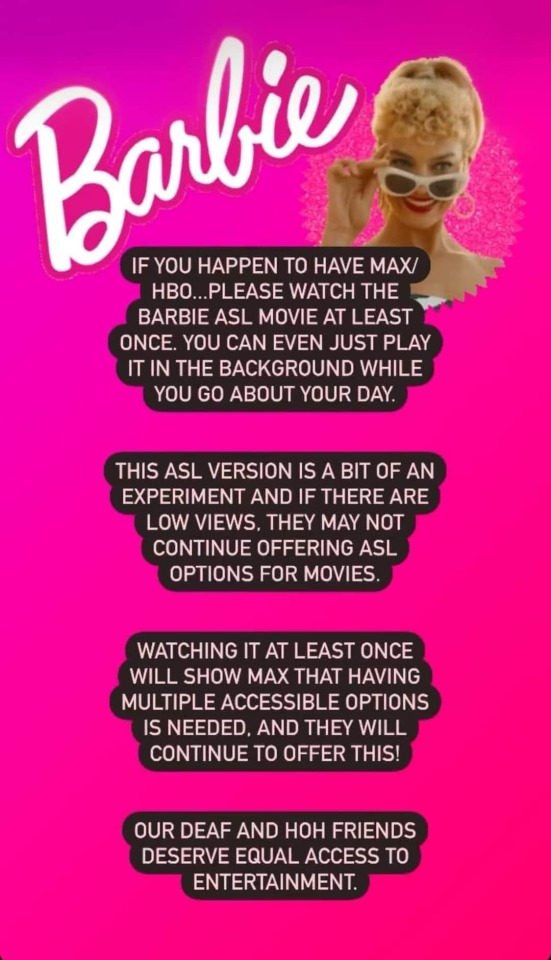
From Misa on Wheels
23K notes
·
View notes